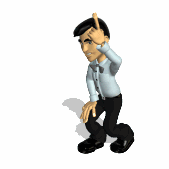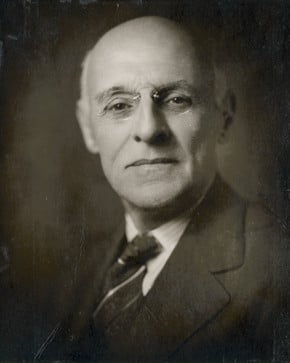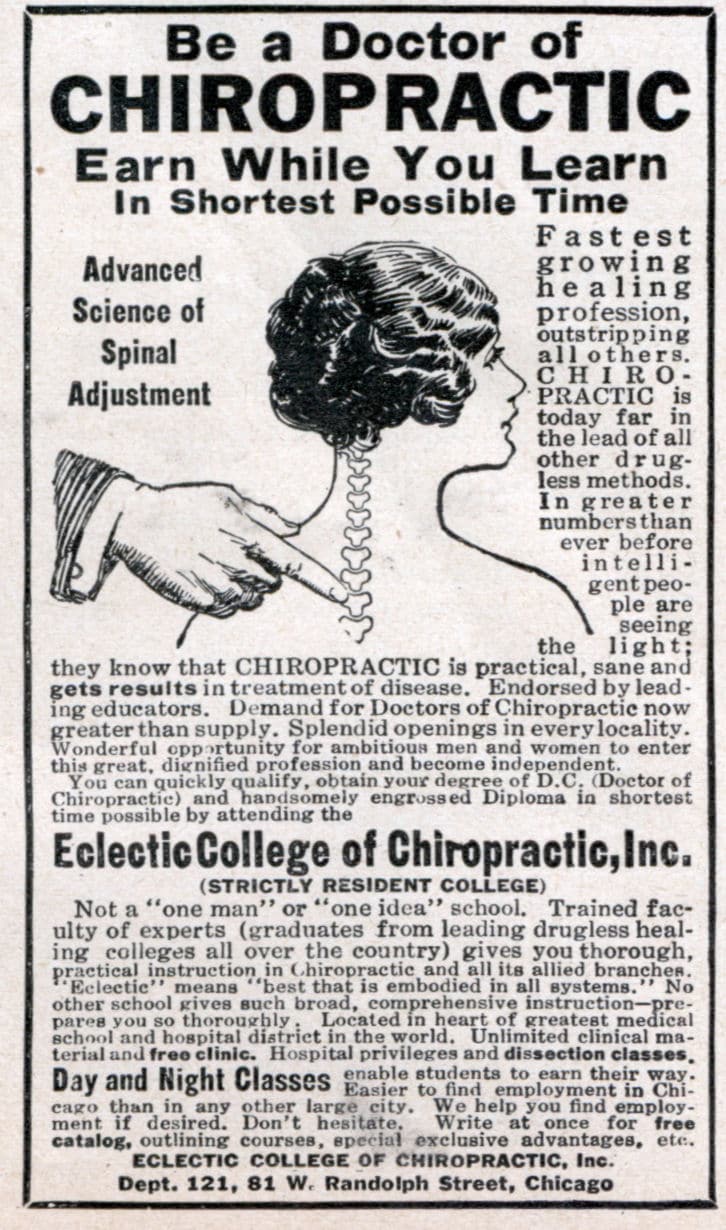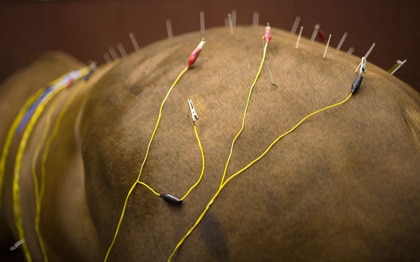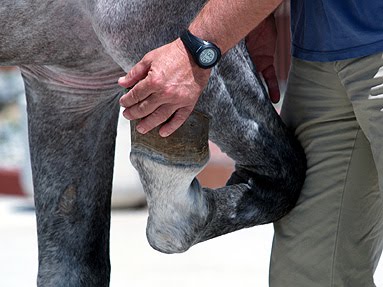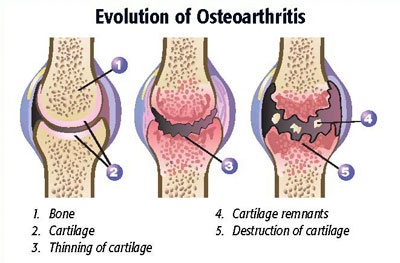“An expert is someone who knows some of the worst mistakes that can be made in his subject, and how to avoid them.” ― Werner Heisenberg
I had hoped that by going to veterinary school, it would be generally acknowledged that I knew something about animals, and, in particular, horses. Happily, this is mostly the case, and thank goodness for the wonderful people who ask me out to solve problems pertaining to their horses, and thank goodness for other experts in my field with whom I can bounce around ideas.
That said, it seems to me that there are an increasing number of “experts” out there, many of whom didn’t go to veterinary school. Now I’m not necessarily talking about the person who has the stall next to you. You know, the friend who, when your horse has had some sort of a problem, and you’ve been concerned enough to call the veterinarian, and your veterinarian has done some sort of thoughtful diagnosis and prescribed a treatment, who when he or she leaves, instantly materializes and says, “My uncle’s best friend’s sister had a horse seven years ago in Hawaii that had something that sounds and awful lot like what your horse has, and they didn’t do anything like what your vet said.”
That’s not an expert. That’s a noodge. * And too bad for you – and maybe your horse – if you’re inclined to listen (you know who you are).
Anyway, the thing is, there are lots of people running around the horse world who claim to be experts in this, that, or the other. In fact, I got to wondering about how many. So, thanks to the miracle that is the internet, I compiled a list of non-veterinarian “certified” equine experts. In no particular order, it’s possible to find certified:**
massage therapists, acupuncturists, sports massage therapists, rehabilitation specialists, dental technicians, adjusters, semen freezers, body workers, equine assisted psychotherapists, dentists, photonic therapists, humane equine managers (believe it or not, this one is available through the Beef Cattle Institute), chiropractors, equine alchemy coaches, osteopaths, shiatsu massage therapists,*** equine therapists, advanced dentists, **** thermographers, nutritionists,***** animal communicators, homeopaths, equine podiatrists, laser therapists, magnetic therapists, acupressurists, body workers, myotherapists…
And that’s just the first 30 pages on Google®.
So, I’m trying to put myself in your shoes. You, who cares about your horse, and wants the best for him. Sometimes you have to be thinking, “What the heck?” I mean, if you managed to somehow put together a stable of “certified” experts for the “optimum” care of your horse (I hate that word), you’d need a new card file (for older readers) or you’d fill up your I-phone memory (for the technologically savvy).
So, seeing all of this, and with you perhaps wondering, “How can I be such an inattentive horse owner that I didn’t even realize that I needed to have someone with each of these credentials ready to assist my horse?” I think it’s prudent to wonder what, exactly, does it mean to be “certified?”
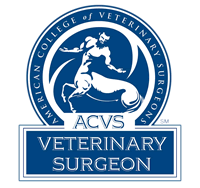 If you’ve been certified in something, it means that you’ve been endorsed by an institution or a person after you’ve successfully meets certain requirements. In some cases, that means a lot. Say that you’ve been certified as a specialist in veterinary surgery, by the American College of Veterinary Surgeons (ACVS). That means that you’ve had to spend at least three years after graduation from veterinary school studying surgery. You’ve had to pass some pretty rigorous testing pertaining to your knowledge of surgery, surgical techniques, anatomy, etc., etc. The test is put on by other surgeons who went through the testing, and who constantly revise it. Once you get to be a Board Certified Surgeon, you’ve really accomplished something. There’s even oversight for the people who provide the certification – there’s an American Board of Veterinary Specialists who oversee the entire process.
If you’ve been certified in something, it means that you’ve been endorsed by an institution or a person after you’ve successfully meets certain requirements. In some cases, that means a lot. Say that you’ve been certified as a specialist in veterinary surgery, by the American College of Veterinary Surgeons (ACVS). That means that you’ve had to spend at least three years after graduation from veterinary school studying surgery. You’ve had to pass some pretty rigorous testing pertaining to your knowledge of surgery, surgical techniques, anatomy, etc., etc. The test is put on by other surgeons who went through the testing, and who constantly revise it. Once you get to be a Board Certified Surgeon, you’ve really accomplished something. There’s even oversight for the people who provide the certification – there’s an American Board of Veterinary Specialists who oversee the entire process.
Unfortunately, given the definition of certification, it’s possible – well, heck, given the Google® results, it’s apparently quite common – for an organization or individual to “certify” that you know what they’ve taught you. It’s a certificate of completion, as it were. And there’s the rub – who says that what is being taught has any meaning at all?
 The problem is that so much of what passes for “education” and “certification” is really just the unsupervised distribution of various ideas and theories that have little or no basis in reality, science, or good medicine. They might be full of good intentions, but, as the old line goes, that’s also the paving material for the road to hell.
The problem is that so much of what passes for “education” and “certification” is really just the unsupervised distribution of various ideas and theories that have little or no basis in reality, science, or good medicine. They might be full of good intentions, but, as the old line goes, that’s also the paving material for the road to hell.
To me, all of these “certified experts” are a huge problem, because they’re mostly out their confusing people, and getting them to waste time and money on unproven and/or unneeded treatments. Unless, of course, you are certified by the Veterinary Voodoo Society (I am proud to say that I am). CLICK HERE TO LEARN MORE.
We’ve been here before (we, as in anyone who needs health care for any reason). A century ago, Abraham Flexner, helped usher in the idea that medical education should come from schools. Prior to that, medical education was more of a loose apprenticeship system, an unregulated industry that churned out “rapidly made doctors.” He said,
“The practitioner is subjected, year in, year out, to the steady bombardment of the unscrupulous manufacturer, persuasive to the uncritical, on the principle that ‘What I tell you three times is true.’ Against bad example and persistent asseveration, only precise scientific concepts and a critical appreciation of the nature and limits of actual demonstration can protect the young physician.”
QUICK LINGUISTIC NOTE: “Asseveration” is a word that’s not used much anymore. I had to look it up. It means, “emphatic assertion.” Chest thumping, as it were. Lots of that going on in the horse health world.
What was a concern then is a concern now. Even some veterinarians are falling prey to – or proudly falling into – the trap of “certification” in various unproven techniques. Personally, I’d think that the diploma that you get from veterinary school might not need to be augmented by a certificate of completion that you can make up on your word processor, but that’s just me. When it comes to something as important as your horse’s health, I think you’d be best off sticking with a small group of real experts who are willing to work together, and who aren’t particularly concerned with getting “certified” in the latest novel technique. It’ll make your life a lot easier.
____________________________________________________________
* noodge, also nudzh: to pester, nag, whine; as a noun, a pest or whiner (from Yiddish נודיען nudyen, from Polish or Russian)
** I am not making any of this up
*** I must confess, I had no idea that horses were particular about the type of massage they were receiving
**** When does a “certified” dentist feel compelled to call a “certified advanced” dentist?
***** NOT the same as a PhD in equine nutrition



